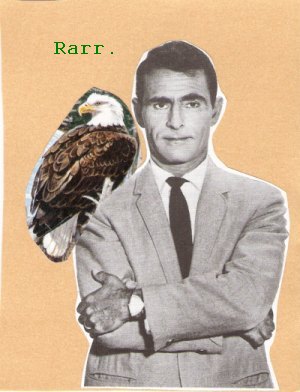
In Theaters
The Class (2008) Cantet - France's contribution to the Oscar's Best Foreign Film category is an interesting mix of fiction and documentary style. The film is based on a novel written by Francois, the teacher who also plays himself. The school itself exposes us to the diversity of urban France and tackles the current state of attitude towards immigrants. This movie is pretty much the opposite of every "inspirational teacher film." Francois is extremely human, makes mistakes, and there are no real tear jerking or overly dramatic transformations. Somehow, it still comes off as a fairly engrossing film. 4/5
In Home
Diary of a Chambermaid (1964) Bunuel - A Parisian girl goes to the country to become a maid. The "monsieur" wants to sleep with her and the old man wants to indulge his foot fetish with her assistance. Amusing the old man, but denying the "monsieur", she decides to quit, until she hears news of a local girl's rape and murder. She is convinced that the head male servant is responsible and wants him to confess and has little scruples in her means of trying to get him to do so. A very abrupt and unresolved ending. 3/5
Fog of War (2003) Morris - Robert McNamara was the Secretary of Defense for seven years, and a notable figure in deciding whether to go to war in Vietnam. He was considered extremely smart, if not a little arrogant. A bundle of contradictions: studied Ethics at Berkeley, then describes himself as a "war criminal." Was responsible for putting seat belts in cars, and becomes teary-eyed in describing his role in the firebombing of Japan prior to dropping the bomb. A compelling figure whether you hate him or can find some sympathy for him. 4.5/5
the Order of Myths (2008) Brown - Margaret Brown herself was a Mardi Gras queen in Mobile, Alabama, so her documentary is undoubtedly very personal. She examines the twin Mardi Gras celebrations that occur in Mobile: one for the whites, and one for the blacks. The whites justify the continued segregation as the ties to "tradition and roots." The blacks are obviously a little less stoked about the South's "traditions." The Mardi Gras parades are viewed as the last stronghold of segregation by the locals, but the younger generations seem to take deliberate actions to mingle more and to be more attentive to racial issues. 4/5
Scum (1979) Clarke - Scum is a controversial film about the English equivalent of juvenile detention. It's like a strict school where the students beat each other up, often from racial motivation. There is extreme violence committed in order for one "trainee" to become the "daddy" over all other trainees, and meanwhile even the staff even participates to a degree in the power game being played. There is a horrifying rape scene that made me nauseous (and I consider myself pretty desensitized at this point) and multiple suicides as a result of the environment. Lastly, a very young Ray Winstone helps this film become memorable, for better or worse. 4/5
Vampyr (1932) Dreyer - I think silent films often lend themselves to eeriness and a certain creep-factor, all though often unintentionally. This film is one step removed from being silent as it has some dialogue. I wasn't always entirely sure what was going on. I know some dude was messing with a book about vampires and Satan and another girl is "damned" but her soul gets freed when two men stab a corpse. The scenes in the fog are mesmerizing. A worthwhile film for anyone interested in classic horror. 4.5/5
the Wild Bunch (1969) Peckinpah - Considered one of the best Westerns and noteworthy for the amount of violence and bloodshed. A group of outlaws are looking to make "one last score." Their burglary goes awry and the group is forced to take on the "Generalissimo." The film is pretty racist and sexist, but I guess not any more so than one would expect from this genre. I suppose the amount of violence was shocking for the time, but feels a little dated now while still entertaining. 3.5/5

No comments:
Post a Comment